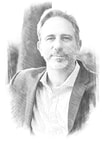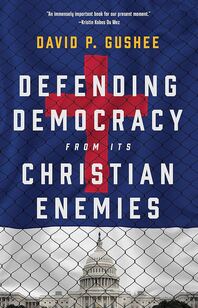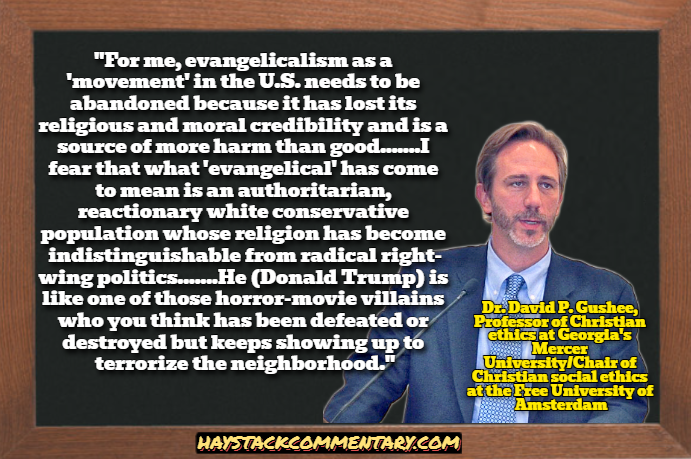===david gushee===
David P. Gushee (born June 17, 1962, Frankfurt, West Germany) is a Christian ethicist, Baptist pastor, author, professor, and public intellectual. Growing up, Gushee attended and completed his college years at College of William and Mary in 1984. After college, he received his Ph.D. in Christian ethics from Union Theological Seminary in 1993. Among the titles listed, Gushee has shown hard work and dedication in different parts of his job and was awarded for his achievements. Gushee is most known for his activism in climate change, Torture, LGBT inclusion, and Post-evangelicalism.
|
Christian ethics professor says Trump, evangelical voters ‘enemies’ of democracy
A new book by Mercer University Christian ethics Professor David Gushee makes the case that evangelical Christians have become “enemies” of democracy, “seduced” by authoritarian leaders like Donald Trump. In an interview with Business Insider this week, Gushee discussed his book, “Defending Democracy from its Christian Enemies,” and his own decision to stop identifying as an evangelical Christian, believing the cultural group has become “toxic.” (Micaiah Billger/The College Fix 1/16/24) READ MORE>>>>> |
“In the US, the immediate crisis is the phenomenon of Donald Trump and the strong conservative Christian support for Trump, which continues to this day,” he told Business Insider. |
|
Christian scholar urges evangelicals to abandon church as it's lost 'moral credibility'
A leading religious scholar said Tuesday he was using his father to halt the "manifest surrender" of American Christians to Trump — and the fascism he expects him to bring. Dr. David P. Gushee, a distinguished university professor of Christian ethics at Georgia's Mercer University and chair of Christian social ethics at the Free University of Amsterdam, spoke with Salon's Chauncey Devega about what he says is a crisis in "White Christianity" as it slowly submits to Donald Trump. (Sarah K Burris/Raw Story 1/9/24) READ MORE>>>>> |
 David Gushee
David Gushee
“If evangelical gatekeepers can swallow keeping children in cages, mocking the Sermon on the Mount, and following leaders in thrall to Trumpist bigotry, why would anyone respect their discernment, value their praise, or fear their critique?”
― David P. Gushee, After Evangelicalism: The Path to a New Christianity
 David Gushee
David Gushee
“Evangelicals are driving out their exiles. They are losing their young disproportionately. So God-oriented, Christ-following folks are heading into post-evangelical spaces. That is what is being built right before our eyes. I believe that evangelicalism is definitely shrinking, post-evangelicalism is definitely coalescing – and I believe it will become a significant part of U.S. religion.” --David Gushee
 David Gushee
David Gushee
“I don’t think that—in the United States today—there is any other single figure who poses as big a threat to democracy and who has anything like the hold on people’s loyalty that we see in Donald Trump,” said Gushee in an interview this week about his new book. “Donald Trump will be a threat to American democracy for as long as he is alive. I think at this point he could be sent to prison and, even in his jail cell, millions of his followers would continue to support him...........That fine-tuning of the terminology used to describe this danger is one of the major points in Gushee’s new book that is intended to further develop warnings found in books by sociologists of religion that include:
- Taking America Back for God: Christian Nationalism in the United States by sociologists Andrew L. Whitehead and Samuel L. Perry
- American Idolatry: How Christian Nationalism Betrays the Gospel and Threatens the Church by Whitehead
- The Flag and the Cross: White Christian Nationalism and the Threat to American Democracy by sociologist Philip S. Gorski with Perry as co-author.

“The category I pioneer in my new book is ‘Authoritarian Reactionary Christianity,’” Gushee said. “I realize that this term may not be as useful in newspaper or magazine headlines as the simpler Christian Nationalism. And I do respect the usefulness of this term Christian Nationalism to get a national conversation going that is much needed right now. But, I think there is more we need to think about, to study and to discuss, if we hope to understand these movements that are raising really ugly forms of hatred and are threatening violence.
“Adding the word ‘reactionary’ to our description is a very important way to name what is often articulated on the Right: These people are reacting to changes in culture that they believe are wrong—which makes them reactionary. And the word ‘authoritarian’ names this desire we are now seeing for the election of a Christian-leaning strongman who will demand or decree the recovery of a world that has been lost. There’s a really troubling loss of confidence in this movement in the democratic process itself to solve the problems they think that only a strongman could address. So, we get this desire to elect someone who will act as a defender of what some people think of as Christian civilization through traditional values—and through opposing modern liberalizing and pluralizing trends. That’s why we we often hear people sum up this appeal as: ‘Taking back our country back.’
“It’s a fierce negative reaction that goes all the way back at least to the Supreme Court’s prayer in schools decision in 1962, to the Civil Rights movement, to the feminist movement, to the sexual revolution, to Roe vs. Wade, to immigration liberalization in the mid 1960s, to the protests against the Vietnam War, to the gay rights movement, to the trans movement—and even that list leaves out a half dozen other movements that have fueled this fierce reaction.
“The reactionary part of this movement isn’t new. We saw it way back with Jerry Falwell and Pat Robertson, but they tried their best to cozy up to the Republican Party in a more traditional strategy of getting people elected. They supported and were working through the democratic process. What we’re seeing in the last few years is a radicalizing that has moved beyond a democratic process. We’re now seeing some of these groups supporting political violence, militia violence—and even trying to set aside an entire national election because you don’t like the results. That’s a dangerous new development and that really is what has motivated me to write my book.
“So those are some reasons I prefer this new phrase I’m using in this book. The other usefulness of this term of ‘Authoritarian Reactionary Christianity’ is that this category applies to what is happening in a number of other countries around the world.”
--David Gushee; Read The Spirit; Dr. David Gushee joins historians and sociologists in warning against the dangers of Christian extremism 10.1.23
“Adding the word ‘reactionary’ to our description is a very important way to name what is often articulated on the Right: These people are reacting to changes in culture that they believe are wrong—which makes them reactionary. And the word ‘authoritarian’ names this desire we are now seeing for the election of a Christian-leaning strongman who will demand or decree the recovery of a world that has been lost. There’s a really troubling loss of confidence in this movement in the democratic process itself to solve the problems they think that only a strongman could address. So, we get this desire to elect someone who will act as a defender of what some people think of as Christian civilization through traditional values—and through opposing modern liberalizing and pluralizing trends. That’s why we we often hear people sum up this appeal as: ‘Taking back our country back.’
“It’s a fierce negative reaction that goes all the way back at least to the Supreme Court’s prayer in schools decision in 1962, to the Civil Rights movement, to the feminist movement, to the sexual revolution, to Roe vs. Wade, to immigration liberalization in the mid 1960s, to the protests against the Vietnam War, to the gay rights movement, to the trans movement—and even that list leaves out a half dozen other movements that have fueled this fierce reaction.
“The reactionary part of this movement isn’t new. We saw it way back with Jerry Falwell and Pat Robertson, but they tried their best to cozy up to the Republican Party in a more traditional strategy of getting people elected. They supported and were working through the democratic process. What we’re seeing in the last few years is a radicalizing that has moved beyond a democratic process. We’re now seeing some of these groups supporting political violence, militia violence—and even trying to set aside an entire national election because you don’t like the results. That’s a dangerous new development and that really is what has motivated me to write my book.
“So those are some reasons I prefer this new phrase I’m using in this book. The other usefulness of this term of ‘Authoritarian Reactionary Christianity’ is that this category applies to what is happening in a number of other countries around the world.”
--David Gushee; Read The Spirit; Dr. David Gushee joins historians and sociologists in warning against the dangers of Christian extremism 10.1.23
